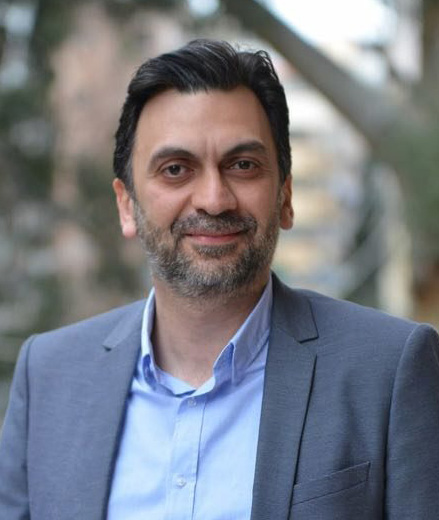On February 29, 2024, Arab Center Washington DC hosted Lebanese Member of Parliament Ibrahim Mneimneh to discuss Lebanon’s domestic and regional policy in light of the Gaza war and the skirmishes between Israel and Hezbollah in the south of the country. Arab Center Non-resident Fellow Patricia Karam moderated the conversation.
 MP Ibrahim Mneimneh is an architect and urban planning expert with experience in urban design and management of projects in Lebanon, the Middle East, the Gulf States, Morocco, and Central Asian countries. He holds a Master’s degree in urban planning from the American University of Beirut, and a Bachelor’s degree in architecture from Beirut Arab University. He was a lecturer for several years at the American University of Beirut and the University of Louisa, in which he participated in international workshops for urban planning and trained those working in government and municipal institutions in urban design in Lebanon and abroad. He is known for his extensive interest in city-related academia, urban design, political history, with a focused study on the environmental, social, and political indicators within the city.
MP Ibrahim Mneimneh is an architect and urban planning expert with experience in urban design and management of projects in Lebanon, the Middle East, the Gulf States, Morocco, and Central Asian countries. He holds a Master’s degree in urban planning from the American University of Beirut, and a Bachelor’s degree in architecture from Beirut Arab University. He was a lecturer for several years at the American University of Beirut and the University of Louisa, in which he participated in international workshops for urban planning and trained those working in government and municipal institutions in urban design in Lebanon and abroad. He is known for his extensive interest in city-related academia, urban design, political history, with a focused study on the environmental, social, and political indicators within the city.
His political activism began in 2015 during a waste and refuse crisis in Lebanon that resulted in a series of protests. In 2016, he was one of the initial founders of the “Beirut Madinati” campaign for the Beirut municipal elections, where he headed the campaign list winning about 40% of the vote, and which sowed the seeds for his candidacy in the 2018 parliamentary elections.
He ran again for office in 2022 with “Beirut Tuqawem” (Beirut Resists), a progressive electoral campaign, and with “Beirut al-Taghyir” (Beirut the Change), one of the two opposition lists in Beirut’s second constituency. His electoral program included holding the political establishment accountable for the Beirut port blast of 2020, ending political clientelism, eradicating Lebanon’s sectarian governmental framework and replacing it with a “secular, democratic and just system”.
In the 2022 election, Mneimneh made a breakthrough that few observers had anticipated when he won 13,281 preferential votes and was elected to one of the Sunni seats in the Beirut II constituency.
